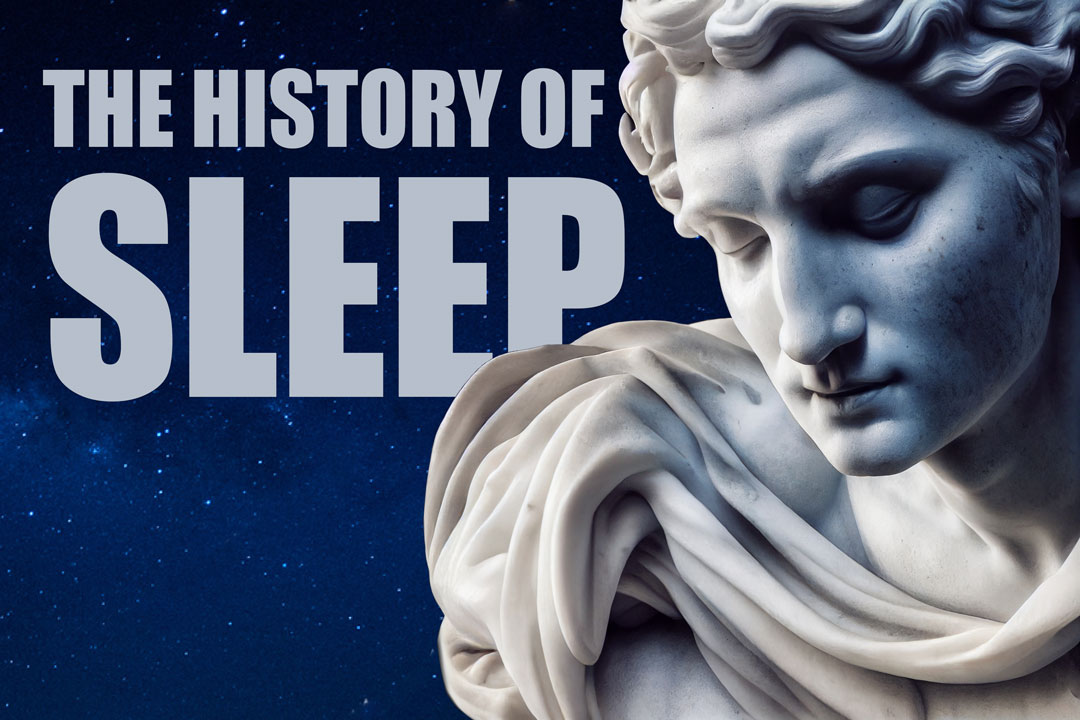
06 Mar THE HISTORY OF SLEEP
People have been wondering about it for thousands of years. They have tried to understand it. They have tried to explain it. Centuries later, we are still discovering facts about it. What is Sleep, after all, and why does it matter?
In Ancient Greece, Sleep was so important he had his own place in the pantheon. To ancient Greeks he was the son of Nyx (Night) and Erebus (Darkness) and the twin brother of Death. His power was so big that he could put anyone to sleep, gods and men alike. The most important of his sons, Oneiroi (Dreams), was Morpheus, who would appear in the dreams of common men, heroes and kings.
Even today, the phrase “in the arms of Morpheus” is used for the lucky ones who can enjoy the perfect sleep, which provides relaxation, wellness, and plenty of energy for the day to come. Johann Wolfgang von Goethe and Albert Einstein were well aware of its importance, making sure to enjoy 10 hours of good sleep every day.
Although today we are used to sleeping continuously for 7-9 hours every night, this was not always the case. During the Middle Ages, people used to divide their sleep in two periods each night. The first one would start a few hours after sunset and go on for a couple of hours. Then, people would wake up for 2-3 hours during which they would do various activities like read, visit their neighbours or have sex. Finally, they would go to bed for a few hours more, until dawn.
In some cultures this sleep pattern has remained (although a bit changed) until today. In some Mediterranean countries, for example, many people prefer to sleep a few hours early in the afternoon and then sleep again later at night in order to get the necessary hours of sleep every day.
The fact is that the biphasic sleep pattern started to change with the Industrial Revolution. Working in shifts, the invention of electricity and the change of life’s rhythm would not allow people anymore to sleep whenever they felt like it or needed to. Instead, they would have to sleep at night for a few hours, continuously. It was then when the slogan “8 hours for work, 8 hours for rest, 8 hours for what we will” made its appearance, and although this demand was in theory met, in reality we are still struggling to achieve it.
During the 1990s, perhaps due to the famous habit of Margaret Thatcher of sleeping only 4 hours a day, the stressful life’s rhythm and the pressure for always more time dedicated to work made people believe that sleeping less is a token of business success and hard work. Thankfully, nowadays this narrative is beginning to change, since various studies have shown the huge benefits of a peaceful, good night’s sleep.
It is no coincidence that this year’s World Sleep Day is promoting the message Sleep is Essential for Health. Quality sleep can help our body and our mind rest, saves necessary energy and contributes to the healthy development of children. In other words, sleep is vital for the human body.
That is the reason that the Sleep Industry is experiencing great development these days. People care more for quality sleep and they try to make sure they have the ideal space and accessories to achieve it.



